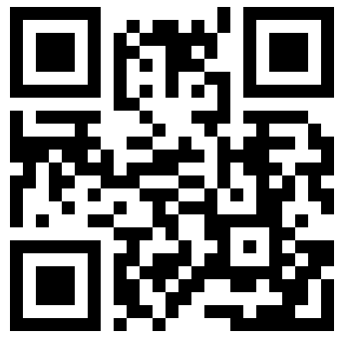Phone
+86 18630938527
Medical ultrasound scanners play an important role in surgical navigation. Surgical navigation is a technology that guides the surgical process through real-time imaging or preoperative image data. Medical ultrasound scanners, as a real-time, non-invasive, and high-precision surgical navigation tool, have been widely used in various surgical navigation systems. This article will explore the accuracy and effectiveness of surgical navigation using medical ultrasound scanners.
2、 The advantages of medical ultrasound scanners
Real time performance: Medical ultrasound scanners have real-time imaging capabilities, which can update and display the internal anatomical structure of patients in real-time during the surgical process, providing timely and accurate information for surgical navigation.
Non invasive: Medical ultrasound scanners obtain internal image information of patients through non-invasive means, avoiding the risks and complications brought by traditional invasive surgical navigation.
High precision: Medical ultrasound scanners have high image resolution and can clearly display the fine structures inside the patient, thereby improving the accuracy of surgical navigation.
Repeatability: Medical ultrasound scanners can perform multiple scans before, during, and after surgery, allowing the surgical team to evaluate and adjust surgical strategies at any time.
3、 The application of medical ultrasound scanner in surgical navigation
Neurosurgical navigation: In neurosurgical surgery, doctors need to accurately navigate to determine the location of lesions and avoid important neural structures. Medical ultrasound scanners can display the fine structures inside brain tissue in real-time, improving the accuracy and safety of surgical navigation.
Abdominal surgical navigation: In abdominal surgery, doctors need to use surgical navigation to determine the location and range of lesions. Medical ultrasound scanners can update the internal anatomical structure of patients in real-time, helping doctors accurately determine the location and extent of lesions, and improving surgical effectiveness.
Orthopedic surgery navigation: In orthopedic surgery, doctors need to use accurate navigation to determine the location of lesions and perform bone localization. Medical ultrasound scanners can guide doctors to accurately locate bones through real-time imaging, thereby reducing surgical time and complications.
Oral and maxillofacial surgery navigation: In oral and maxillofacial surgery, doctors need to accurately navigate to determine the location of lesions and avoid important blood vessels and nerves. Medical ultrasound scanners can display the fine structures of the oral and maxillofacial regions in real-time, improving surgical safety.
4、 Accuracy evaluation of medical ultrasound scanners
Comparative study: By conducting comparative studies, the accuracy of medical ultrasound scanners can be evaluated. A study has found that medical ultrasound scanners have higher accuracy in neurosurgery surgery and have higher accuracy compared to traditional CT and MRI. Another study shows that medical ultrasound scanners can accurately determine the location and extent of lesions during abdominal surgery, with high consistency with pathological results.
Accuracy evaluation: Accuracy is one of the important indicators for evaluating the accuracy of medical ultrasound scanners. Research has shown that medical ultrasound scanners have high positioning accuracy in neurosurgery surgery and can meet the needs of surgical navigation. In addition, studies have pointed out that medical ultrasound scanners have high bone positioning accuracy in orthopedic surgeries and can provide timely and accurate navigation information for doctors.
Operator influence: The operator is one of the important factors affecting the accuracy of medical ultrasound scanners. Research has shown that the experience and technical level of operators have a significant impact on the accuracy of medical ultrasound scanners. In order to improve accuracy, it is necessary to strengthen the training and technical level evaluation of operators.
5、 Evaluation of the effectiveness of medical ultrasound scanners
Safety assessment: Safety is one of the important indicators for evaluating the effectiveness of medical ultrasound scanners. Research has shown that using medical ultrasound scanners in neurosurgery can improve surgical safety and reduce the incidence of complications. In addition, studies have shown that medical ultrasound scanners can accurately determine the location and extent of lesions during abdominal surgery, thereby reducing the risk of postoperative complications.
Effectiveness evaluation: Effectiveness is another important indicator for evaluating the effectiveness of medical ultrasound scanners. Research has shown that in orthopedic surgeries, the use of medical ultrasound scanners can accurately locate bones, improve surgical outcomes, and accelerate patient recovery. In addition, studies have shown that medical ultrasound scanners can improve surgical accuracy and safety in oral and maxillofacial surgery, thereby improving patient prognosis and quality of life.
Patient satisfaction assessment: Patient satisfaction is one of the important indicators for evaluating the effectiveness of medical ultrasound scanners. Research has shown that using medical ultrasound scanners for surgical navigation can reduce patient pain and anxiety, and improve patient satisfaction and comfort.
6、 Conclusion
In summary, using medical ultrasound scanners for surgical navigation has high accuracy and good results. Through real-time imaging and high-precision positioning, medical ultrasound scanners can provide timely and accurate navigation information for surgical teams, thereby improving surgical safety, effectiveness, and patient satisfaction. With the continuous development and improvement of technology, the application prospects of medical ultrasound scanners in surgical navigation will be even broader.
Last:Design of portability and mobility for medical ultrasound scanners
Next:The application of medical ultrasound scanner in the diagnosis and treatment of abscesses
If you have any questions, please contact us!
CONTACT US

